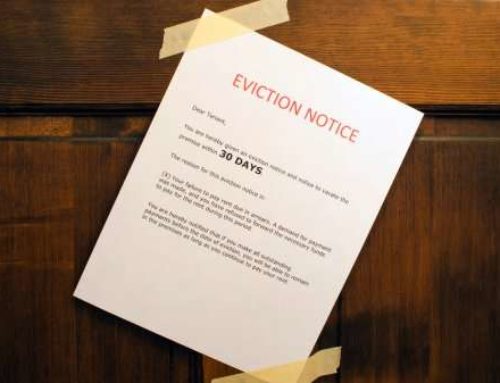Renting out a house can be a great way to make some extra money, especially if you need a way to help cover the costs of the mortgage and other associated expenses that come with home ownership. But, it is not a situation you should enter into without some background knowledge about what you need to do and what you can expect. To help you along the way, here is a guide to renting out a house.
Tips for Renting out a House
Know Your Local Rental Market
If there is high demand for rental properties in your area, offering your vacant house to potential renters is a great idea. However, if the demand is low, you may have a difficult time getting any takers. It your intent is to make money with a rental property, it is only worth going into if you are going to be able to find people to rent the property. Also, keep in mind that the more people you have to choose from for prospective renters, the better chance you will have of finding a tenant who is going to be responsible and trustworthy.
Ask Yourself Some Hard Questions
Before you start posting announcements that you have a house for rent, you need to know that this is something you truly want to do. So, you need to start by asking yourself some hard questions and giving yourself honest answers. Here are some questions you need to consider the answers to:
- Why are you renting the house out?
- What improvements do you want to make before you rent it?
- Do you want to use a property manager?
- How much rent can you charge?
- How much of a security deposit can you ask for?
- How are you going to find the best tenants?
- What is your screening process going to be?
- What qualities will disqualify an applicant from being able to rent the house?
- How will you conduct background and credit checks?
- What will you do if something goes wrong?
Screening Prospective Tenants
Before you rent out your house, you need to find good tenants. Unless you already know the people to whom you will be renting, you will need to learn about them before you agree to let them rent your house. Failing to take this step can have disastrous consequences, so it is crucial to do your due diligence. Before you agree to rent your house to a stranger, find out the following information:
- Past and present employers.
- Former landlords.
- Present income and other debt obligations.
- Credit scores.
- Police reports.
Also, be sure to get at least two personal references. Do not forget to let prospective tenants know about any pet policies you have upfront, and find out of he or she was planning on bringing pets in. If you do not want to allow pets in the house, do not rent to anyone who has or wants to get a pet.
Hiring a Property Manager
If you cannot or do not want to handle screening tenants and taking care of the other responsibilities of having a rental property, you can choose to hire a property manager. A property manager can help you with the following tasks related to renting out a house:
- Producing and distributing advertising that the house is for rent.
- Prospective tenant screening.
- Collect rent and security deposits.
- Negotiate rental agreements and signs leases.
- Conduct inspections.
- Takes care of having repairs done.
- Files evictions when necessary.
Have a Basic Understanding of Rental Law
If you decide to rent out a house and become a landlord, it is in your best interests to have a basic understanding of the rental laws in your area. When your tenant signs a lease, it is a legally binding agreement that spells out the responsibilities of both the tenant and landlord. So, it is crucial that you know the rights and responsibilities of both your tenant and you. You also need to know what steps you can take if the relationship with your tenant goes south.
Steps to Take if You Want to Rent Out a House
If you are ready to take the plunge and rent out your house, follow these steps to make the process smooth and easy:
- Make updates and improvements. This step is particularly important if you need to bring the house up to code for a rental property. It is crucial that the house be safe for anyone who lives in the property.
- Change the house’s status. You must contact your mortgage lender to let them know you are no longer living in the home and using it as a rental property. You also need to let the municipality where the house lies of the change in status as well.
- Change your homeowner’s insurance. Homeowners insurance is different from landlord property insurance and it is necessary to have the property insured property.
- Decide if you are going to manage the property yourself or hire someone to do it for you.
- Decide on the amount of rent you want to charge.
- Find a tenant.
If you have a property you no longer want to live in, you can also sell it rather than go to the hassle of renting it out. Ben Buys Indy Houses will buy your house for cash. We will get the process done quickly, and you can walk away with 100 percent of the sale price. Contact us today to see how we can help you. Click here to hear from some of our satisfied customers.





